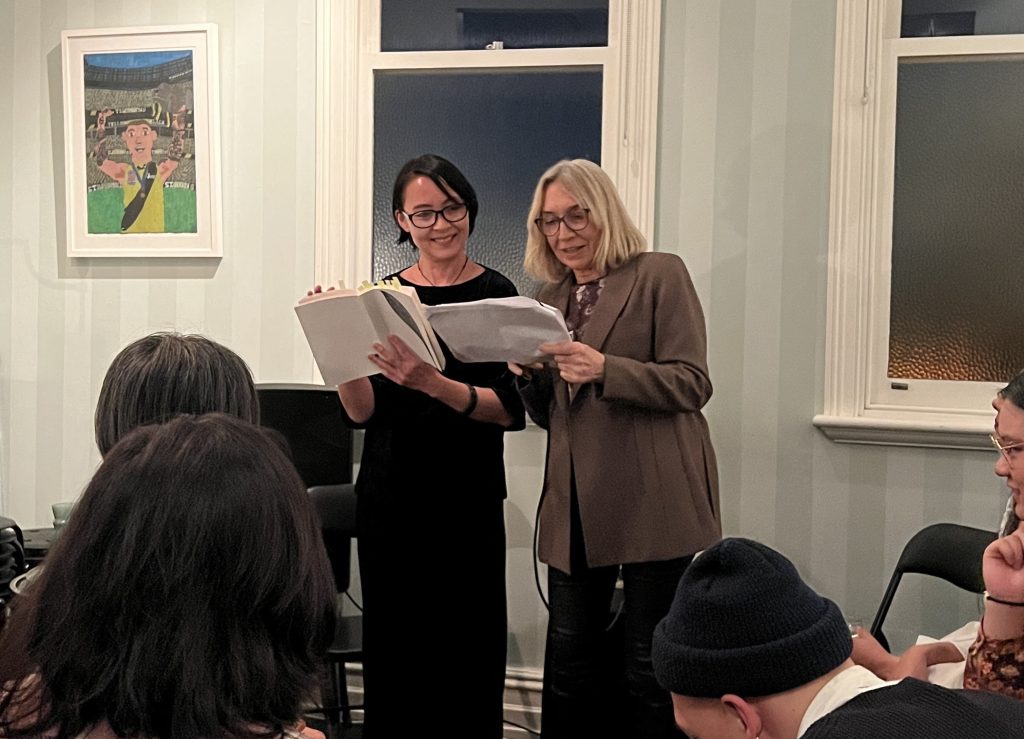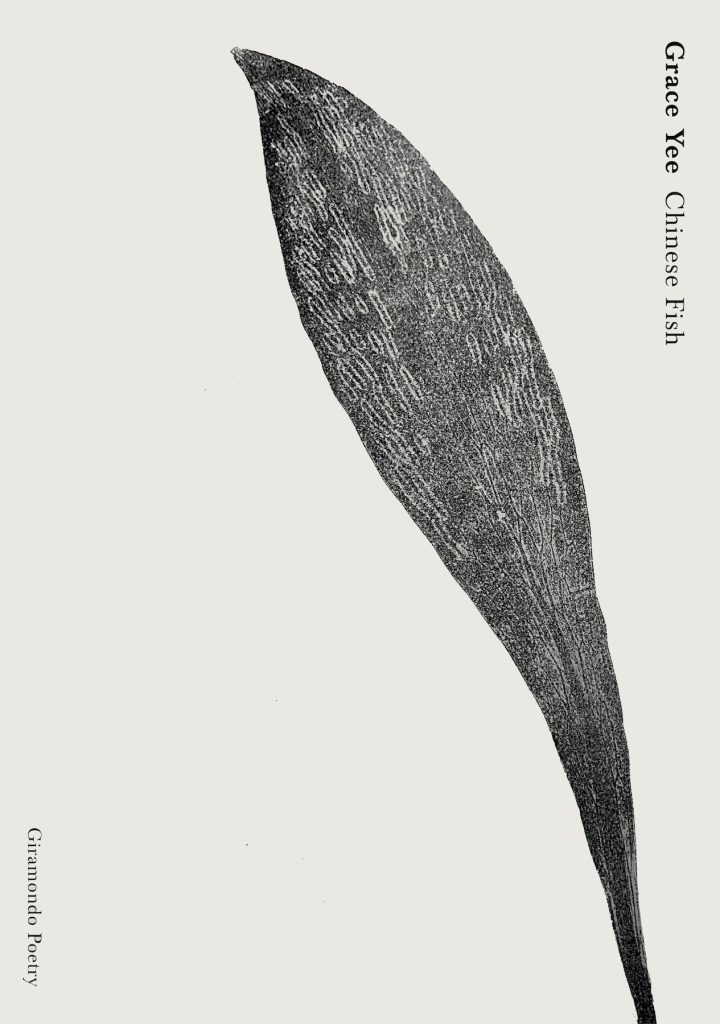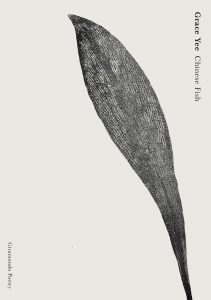Transcript: Grace Yee at the launch of Chinese Fish

The poetry collection Chinese Fish by Grace Yee was published in June 2023, and celebrated its launch at The Alderman in Brunswick East. A work which ‘portrays the fractured, multilayered, imperiled body of the immigrant story in a stunning work of genre-bending prose poetry’ (Juli Min), it brings us into the daily lives of a multi-generational family newly settled in Aotearoa, New Zealand, where Yee grew up. The book’s launch speech was written by Marion May Campbell, and delivered on the night by Lisa Gorton. Read a transcript of the speech presented by Yee at the launch below.
Thank you Lisa, and thank you Marion, for your generous words.
I am hugely grateful for Marion [May Campbell]’s support from the inception of this book, which began as part of a PhD project, and for her generous support for my work in the years since.
I am also very grateful to Lisa [Gorton] for editing Chinese Fish – Lisa’s guidance and suggestions, particularly on characterisation and voice, challenged me to think more deeply about the work.
Thanks to Ivor Indyk and the Giramondo team for taking a chance on the manuscript; to Aleesha Paz for extraordinary attention to detail, and Kate Prendergast, for her tireless marketing and promotion.
Thank you, Alison, Saradha, romesh, Manisha and Xiaole, for your kind words and brilliant readings. I feel honoured to be in your company and look forward to reading more of your work.
Huge thanks also to Fran Martin, who supervised the critical component of the thesis that accompanied Chinese Fish; to Ely Finch, for expert guidance on the translations – and the pronunciations!
To Zachary Wong, for the illustrations; to my early readers Alison Wong, Coral Campbell and Helen Gildfind, for reading numerous versions of the manuscript; and to my family and close friends for practical and moral support over the years it has taken to complete this book.
There was a comment that Marion made on a very early draft which has remained with me. It was in response to a series of vignettes that I’d forwarded to her, which were narrated in a single omniscient voice.
The comment was: ‘it’s important that there be levels in the work, that lend a kind of poetic hospitality.’
I love this idea of ‘poetic hospitality’, of openness in a text, of spaces between levels – or layers – that allow readers to visit with the text – to sit with it, to enter, leave and re-enter…
I didn’t strategically create different levels in Chinese Fish, but the more research I did, the more voices I heard, the more I felt that this story needed to be narrated in multiple voices.
So there’s Ping, the long-suffering wife and mother who migrates from Hong Kong to Aotearoa, with her husband; there’s Cherry, the eldest daughter, who has to navigate the space between the patriarchal Chinese home, and the outside Pākehā world.
There’s the serious voice of the scholar, and the colonialist orientalist mainstream narrator, a voice inspired by the archives, that parodies orientalist tropes and stereotypes, which haven’t really changed that much over several decades – the epithets and exoticisations that I grew up with are not so different from the ones I read in late 19th century newspapers, or hear on the street today. Chinese culture has often been described as ‘traditional’, ‘timeless’ and unchanging, but maybe it’s the orientalist lens that is fixed in its stare.
I had a lot of fun playing with the voices in the book: Ping is inspired by my mother and the women of her generation who migrated to Aotearoa as newlyweds to Chinese New Zealand men. The English they spoke was typically ‘broken’ and integrated with other Chinese languages. My mother and aunties spoke Cantonese, Taishanese, English, and occasionally Mandarin, fluently – but often mixed two or three of these together, in the same breath.
We all grew up communicating in this hybrid language that we later couldn’t teach or hand down to our own children, because it was so make-shift, transitional, the kind of bridge that is gradually dismantled over the generations once the family becomes more established in the new land.
I am very happy to have written a little of it down now for posterity, in this book.
I will now read a selection of poems from Chinese Fish, with the assistance of my friend, Coral.


